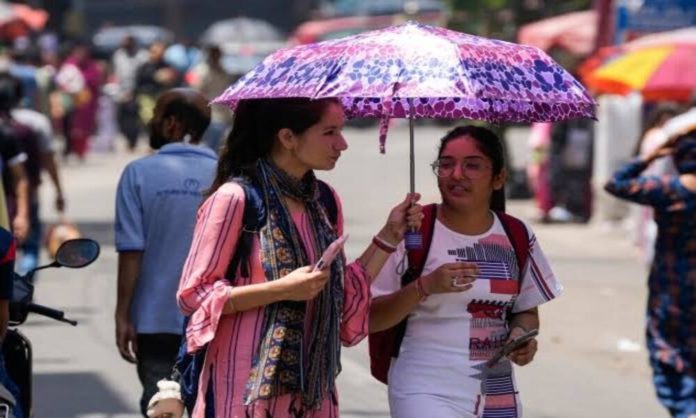Previously, a study based on computer simulations by researchers at the Massachusetts Institute of Technology (MIT) made startling revelations about the impact of climate change on South Asian countries by 2100, which includes Pakistan, India, and Bangladesh.
“If climate change continues at its current pace, deadly heat waves beginning in the next few decades will strike parts of India, Pakistan and Bangladesh and similar events will become more frequent and intense,” according to international researchers.
United Nations Climate Change Report
A recent report published by United Nations warns that upcoming climate change would be as deadly as cancer in certain parts of the world. According to the report already vulnerable areas are likely to be hit the hardest, driving an inequality surge in human development unless there is urgent climate action.
Read More: Mental Health Awareness – Still A Stigma In Pakistan?
The new data shows the need to act quickly, not only to mitigate climate change but also to adapt to its consequences. For instance, in Faisalabad, Pakistan, even with moderate mitigation, additional deaths due to climate change would average 36 per 100,000 people each year between 2020-2039. Without substantially expanding adaptation efforts, Faisalabad could expect annual climate change-related death rates to nearly double, reaching 67 deaths per 100,000 by midcentury. An increment almost as deadly as strokes, currently Pakistan’s third leading cause of death.

“As we face the punishing impacts of global climate change it can be easy to wonder whether efforts to reduce emissions by individual countries, states, or cities make a difference. This platform shows the direct role these efforts play in shaping our collective future,” said Climate Impact Lab’s Hannah Hess, Associate Director at Rhodium Group.
According to Nadeem Faisal, former director of the Climate Data Processing Centre — a key unit within the PMD, “In the very recent past, the Pakistan Meteorological Department (PMD) conducted a thorough research for an international organization, which should also have set alarms bell ringing.”
“An analysis of the data revealed that the annual mean temperature has risen for the country as a whole by 0.74°C over the last 58 years by 2019, which is quite alarming. The recent changes in weather conditions very much manifest the authenticity of this finding.” He added.
Human Climate Horizon Platform
Human Climate Horizons (HCH) is a data and insights platform providing localized information on the future impacts of climate change across several dimensions of human development. It is open access and the scalable digital public good – a window to possible futures – fed by an evolving stream of multidisciplinary frontier research.
Read More: You Can Now Go To Jail For Spreading Hate On Social Media
It is the result of joint work of the Climate Impact Lab and the UNDP’s Human Development Report Office.
Stay tuned to Brandsynario for the latest news and updates.









































